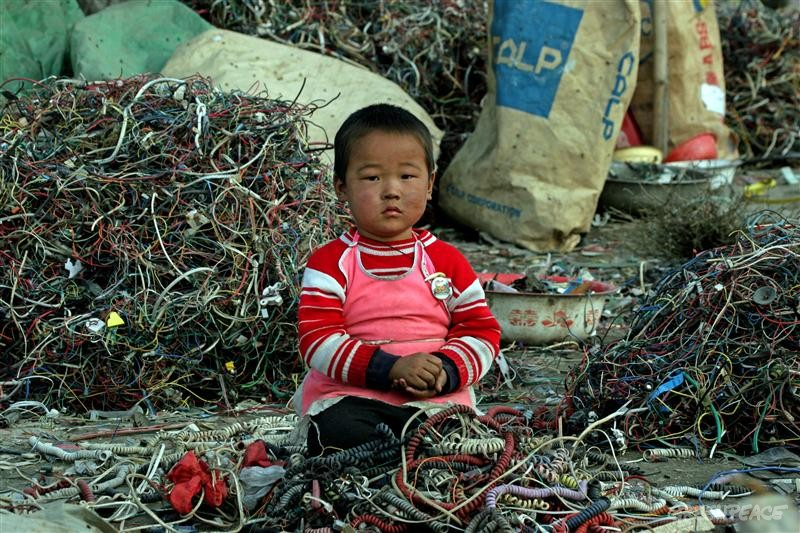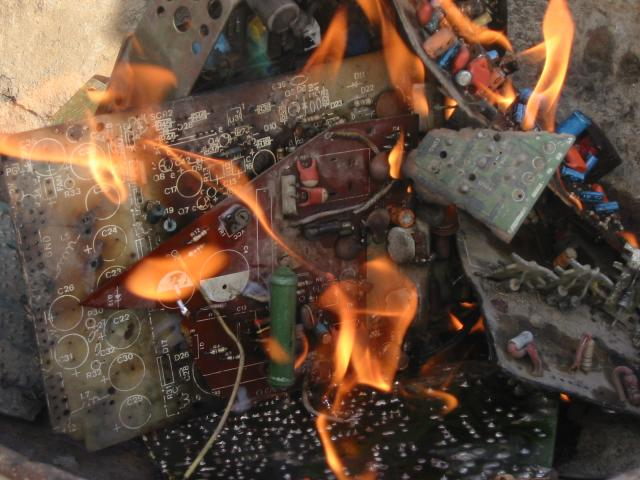This article is in continuation of our previous blog post on the state of e-waste management in China.
In our previous article, we highlighted a disconnect between China’s formal and informal recycling channels, as well as areas of potential growth for both e-waste innovators and Chinese officials:
If the Chinese government wants to encourage a more dominant formal recycling system, it will require not only a top-down, supply-chain approach but also a more extensive grassroots approach. Legislators and local officials specifically need to tackle two gaps:
- Insufficient repair-work and damage-control in informal recycling hubs like Guiyu, and
- A lack of bottom-up incentive for informal recyclers to leave their trade and cooperate with formal recycling agencies.
In order to better understand these two unmet needs, let’s look at the informal recycling process in China and its e-waste cities.
INTRO TO E-WASTE
When you throw out an iPhone, TV, fridge, or other tech product, it either ends up in a formal recycling facility, in a landfill, or in the hands of an informal recycler in one of China’s e-waste cities. In the first case, the e-waste is properly treated, and an officially licensed recycler minimizes environmental damage when breaking down the product. In the second case, the e-waste misses both formal and informal recycling tracks and instead ends up buried in a mass landfill where it has the potential to start major fires or leak chemical byproducts into the soil.

The last disposal option – informal recycling – has a subtler, but perhaps more dangerous effect on local environments. Informal recyclers don’t have access to proper recycling equipment and aren’t officially regulated by waste management agencies like China’s Ministry of Environmental Protection. They exist entirely outside of the environmental law and are mostly interested in extracting valuable metal like copper, gold, palladium, and silver.
DANGERS OF EXTRACTION
The most common methods for extraction include physical dismantling with hammers or chisels, intense application of heat, or acid-baths, each of which causes lasting damage to both the recycler and the recycler’s surroundings.
The first method, physical dismantling, produces the fewest toxic byproducts. After dismantling e-waste, informal recyclers are left with potentially valuable metal and plastic, along with unwanted garbage. E-waste byproducts with no value are either discarded in a landfill or incinerated, causing similar problems as buried e-waste in landfills (such as unmanageable fires, toxic fumes, and slow decomposition).
The other two methods of extraction – intense heating and acid baths – carry serious health risks for the informal recycler and local residents. Intense heating involves a direct release of toxic chemicals into residential areas, while baths involve a direct disposal of acid and unwanted metals into local soil and water sources. This means that dangerous pollutants are not contained, but rather, are released into residential communities and continue to contaminate local air, water sources, and soil long after informal sites are shut down.

Occupational health researchers have found that residents from informal recycling areas have higher likelihoods of developing respiratory problems, brain damage, deficient central nervous systems, and lead poisoning.
QUESTIONS GOING FORWARD
This is just an introduction to the gap in China’s e-waste cities and overall waste management. Further research should delve deeper and consider possible strategies to tackle the informal recycling sector. These critical questions remain:
- First and foremost, how can Chinese legislators improve RAW legislation to co-opt informal recyclers?
- How can they incentivize small workshops to cooperate with large-scale licensed recyclers?
- Finally, once local police departments have shut down informal recycling centers like Guiyu, how can they correct for lasting environmental damage?
What are your thoughts?
We at Collective are currently conducting further research with China’s informal recyclers to find further insights into this rising issue. Follow Collective on social media to stay in the loop on our project and share your impressions, comments, and solutions on this topic!
This article was written by Alison Schonberg, Research Analyst at Collective Responsibility.
